The Unitarian Society, East Brunswick, NJ
August 11, 2019
Perhaps you know in your body. Perhaps you know in your head. Perhaps you know in what Buddhists call your heartmind, that deep place of coherence beyond the binary, beyond the either/or, beyond the one or the other.
We have moved past climate change…
…to climate changed.
Or climate catastrophe or crisis or constriction. Emergency. Breakdown. Chaos. Take your pick.
Instead of stopping global warming, there are some who have given up the notion of prevention and now speak of mitigation. Sometimes, folks with this worldview – and perhaps it is you — speak of adaptation, lower case “as,” a kind of adjustment that forecasts society as still recognizable, our current linear economy more or less intact, just smaller, inconvenient to be sure, but manageable.
There are those who speak of reversing the damage, of seeking salvation (and perhaps even redemption) through technology or artificial intelligence or a combination of both. Seeding the clouds, carbon capture. Perhaps this is you.
Even though I do not hold these worldviews, if you do, I honor you.
There are those who believe we are well beyond the tipping point, yet believe that it is irresponsible to disseminate that perspective, no matter the science to back it up, for it raises despair. Perhaps this is you.
It is not me, though it is tricky for a minister to raise despair without guaranteeing a counterweight of hope, a punchline to the perverse joke of environmental destruction. Or at least a silver lining.
There are those who do speak of collapse:
“an uneven ending
of our normal modes
of sustenance, security, pleasure, identity,
meaning and hope,”[1]
a definition I borrow from Jem Bendell, an academic in Britain, the founder of the Institute for Leadership and Sustainability and of the Deep Adaptation Forum; and associated with the new movement, Extinction Rebellion.
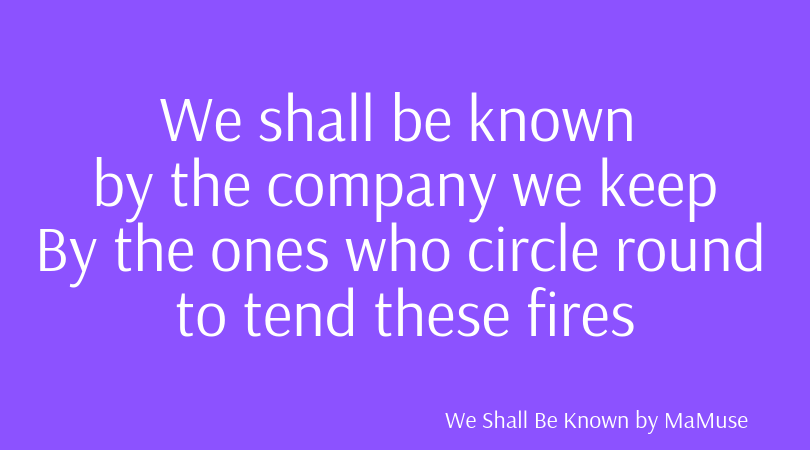
I want you to hear that again, for it’s important for this morning’s sermon:
an uneven ending of our normal modes of sustenance, security, pleasure, identity, meaning and hope
This is not the collapse of a house of cards, something known from the very beginning will fall apart. No, this is collapse of what we were raised to believe was rock solid.
Deep Adaptation is a concept put forward by Bendell, whose paper, “Deep Adaptation: A Map for Navigating Climate Tragedy” was published about a year ago (on July 27). A mere 26 pages, with an additional ten pages of citations, Bendell concludes that collapse is both inevitable and imminent.
“It is a difficult conclusion to arrive at. And a difficult one to live with.” (Bendell)
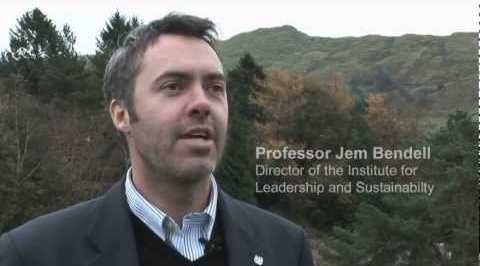
Bendell is no cynic or masochist, nor is he particularly morbid, as far as I can tell, having never met him. He is a person who has turned towards fear and grief for the world. A person who has invited the poison of despair to surface and the terror of species extinction to manifest in his psyche.
A person who has lived to tell about it on the either side. Doing so, speaking of hope and love; speaking not of Doom and Gloom, but of Doom and BLOOM.
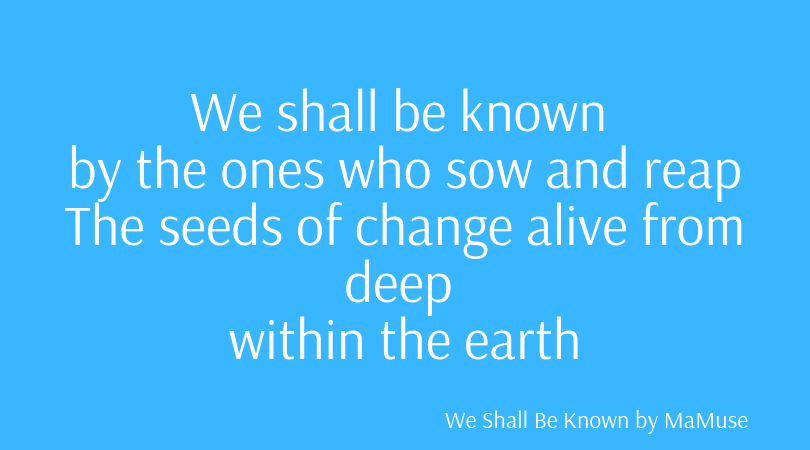
In Deep Adaptation, collapse is coupled with love, community, and compassion. Rather than lose all hope, it is about shifting the shape and texture hope now takes. Survival at any cost is not the pinnacle of human aspiration.
Instead, how we are with one another – cultivating what some call our humanity, but is much wider than that, more inclusive of all sentient beings – that is our utmost aspiration. Our goal is not to turn against each other, as Tim deChristopher described in the video reflection we just watched. Not survival at any cost if the cost requires us to be ugly to one another.
Deep Adaptation offers four guiding principles:
- Resilience: discerning which values and norms we wish to retain and cultivate as we seek to survive. This is a deeper concept than the more typical notion of resilience as bouncing back from adversity – rather than bouncing back to one’s previous circumstance or capacity, it’s about intentional cultivation of some of our capacities that will serve us going forward.
It makes me think of some of what we heard in the video earlier, from Tim deChristopher. With the impossibility of seven-plus billion people living in a climate constricted world, what kind of society do we want to have. How do we cultivate it right now? Resilience.
Then the other side of the cultivating resilience coin:
- Relinquishment: the opposite of cultivating. This is about letting go – relinquishing – capacities that may have served us in the past, but will no longer do so – in fact, might make things worse. For instance, buildings along coastlines or on flood plains. Access to foods from halfway across the planet or out of season locally. No more avocadoes in Buffalo. Here in Jersey, peaches only in July and August. Relinquishment.
Third is
- Restoration which is about rediscovering attitudes and approaches of to life that were largely, or wholly, left by the wayside in our fossil-fuel-saturated, growth-based society. Waking with the rising of the sun, sleeping with its setting. Moving away from a linear economy of take-make-use-lose to a circular economy where reducing is prioritized first, reusing as second, and recycling is still an option, but only after those first two. Restoration.
The fourth R was not in the original paper, but added in January of this year. It’s
- Reconciliation. and it asks, “What could I make peace with to lessen suffering?” It is an invitation to make peace within ourselves, with others in our personal lives or in our cultural circumstances (like healing systemic racism), or with whatever divine source in our lives calls to us. We do this because without some form of reconciliation, we risk tearing each other apart, increasing our suffering on the way to collapse. Reconciliation.
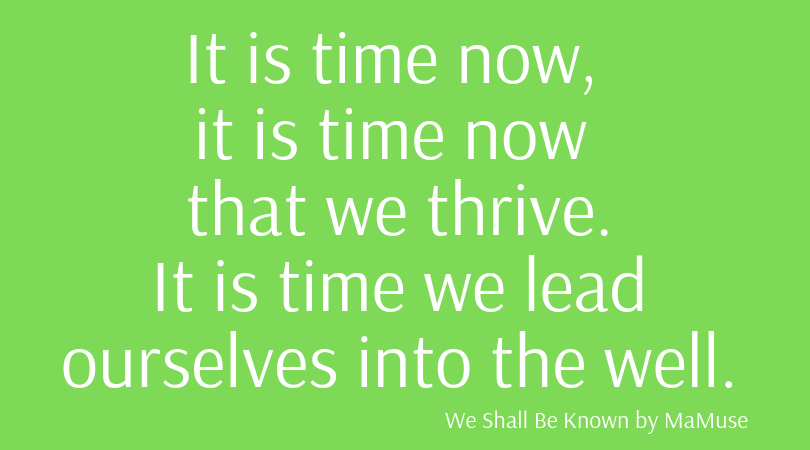
I attended high school in the early 1980s, the height of the nuclear arms race and the peak of mutually assured mass destruction. The first sleep-away summer camp this nerd ever went to was during high school and it was studying the impact of nuclear holocaust on literature. So I think it’s fair to say that my life holds a long-running thread related to the possibility of doom.
It was in this era of my life that I came across this quote, which I wrote down in this very notebook which I hold in my hand, the first entry in 1984 and the last in 2003. The quote comes from someone named Elissa Melamed and clearly captured my imagination back then. You can find it at the top of your order of service:
I don’t know how long we have. We have to do this work because we believe in peace and in building peace. We start with ourselves, our communities: the circles get larger. If the bomb falls tomorrow, there’s something so valid about living this way, that we would live this way anyway.
This is the reason to turn towards our grief for the climate, towards our despair for the planet, rather than away. This is the reason to let surface the fears and, yes, even the terror, that we might release it. It may not let full go of us, but it will take on a different weight and a lesser power in our personal lives and in our collective life.
This should not be done alone. Isolation makes the burden heavier. While feeling such heavy feelings may feel beyond possible, the alternative is exponentially more corrosive. To our individual selves and to society.
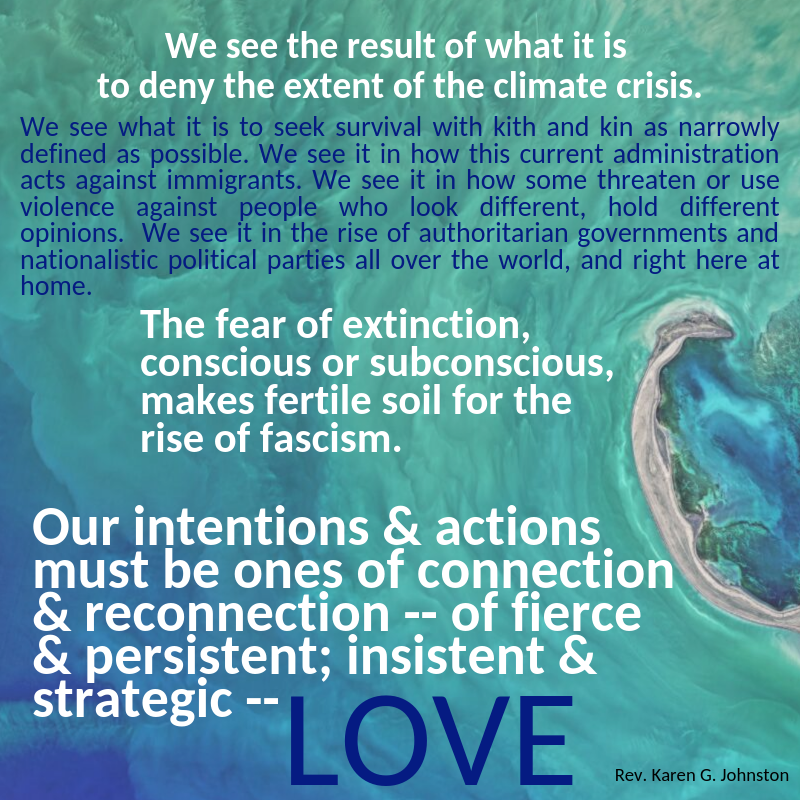
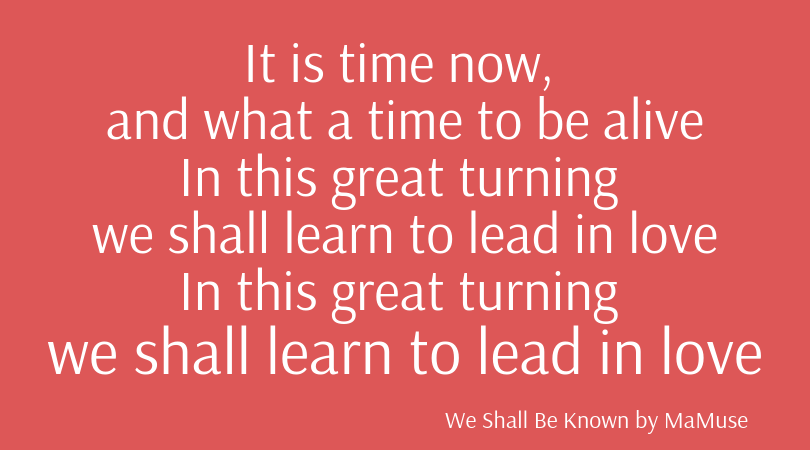
Shifting out of isolation, normalizing conversations about the climate emergency we find ourselves in, weaving and reweaving connection of community and growing deep inclusion now — these are our survival tactics. Being present in this way takes practice, for it is not easy to allow ourselves to feel the despair, the rage, the sorrow, the guilt.
Surfacing our climate grief is not a substitute for enacting change in the public sphere. It is, rather, a tool of such efforts, likely making us more effective, for we come out of such sharing more robust, more able to face the world as it is. As British psychologist, Susie Orbach, another member of the Extinction Rebellion movement, says, “We need to mourn AND organize. It should not be one or the other.”
This is exactly the reasoning behind one of the new ministries – Adult Religious Education, if you prefer that term better – that I will be facilitating this year. Starting on September 15 – it’s a Sunday evening – there will be gatherings here called ClimateSpirit. These gatherings will include food, poetry, activities that are grounding, singing (I am looking for someone to take on the role of leading the songs — I am willing, but we all know there are folks better equipped than I to do this).
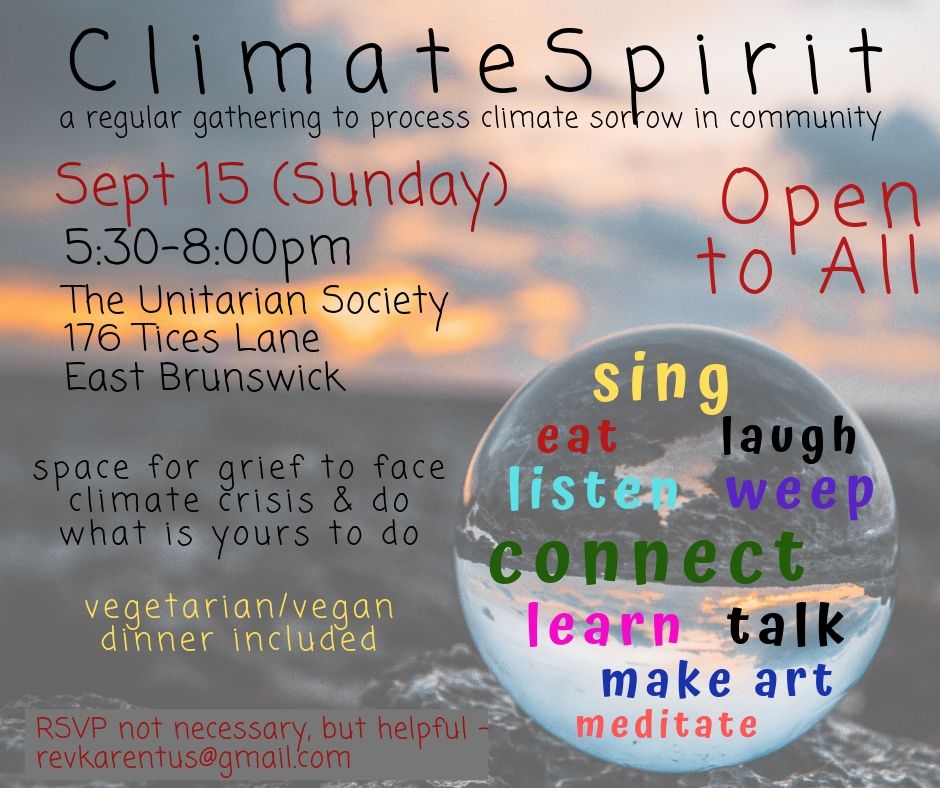
Every time we gather, we will begin by grounding ourselves in gratitude, essential to how I was taught to facilitate such groups. Then we move into space that invites our pain for the world. After that, we engage our imaginative hearts, rather than our skeptical intellects, into seeing with new eyes and then practice going forth into the world.
There will likely be tears. And definitely laughter.
It will not be a space for sharing the latest horrific news or intellectual debates. We will, as much as possible, veer away from advice giving. We don’t gather to solve each others’ problems; we gather to offer our witness and to receive it, to lessen the weight of the world so that each can be able to do what is theirs to do, whatever that is.
How often will we meet after that first dinner workshop on September 15? I’m not sure. Quarterly? Every other month? Monthly? It depends on the momentum we generate.
And I want to fess up. While I have developed this ministry this for you, the congregation I serve, and for our local community, which I also serve, let’s not kid ourselves: I am doing this for me. I spent most of my summer study leave focusing on the climate crisis. What I learned or was confirmed for me is devastating. I need this. And I know that I am not the only one.
Perhaps you know in your body. Perhaps you know in your head. Perhaps you know in what Buddhists call your heartmind, that deep place of coherence beyond the binary, beyond the either/or, beyond the one or the other: you need this, too.
May the ways we prepare for this great turning, whatever it be, be ways that lead in love.
May it be so. Amen. Blessed be.
[1] Jem Bendell, Doom & Bloom, This is Not a Drill